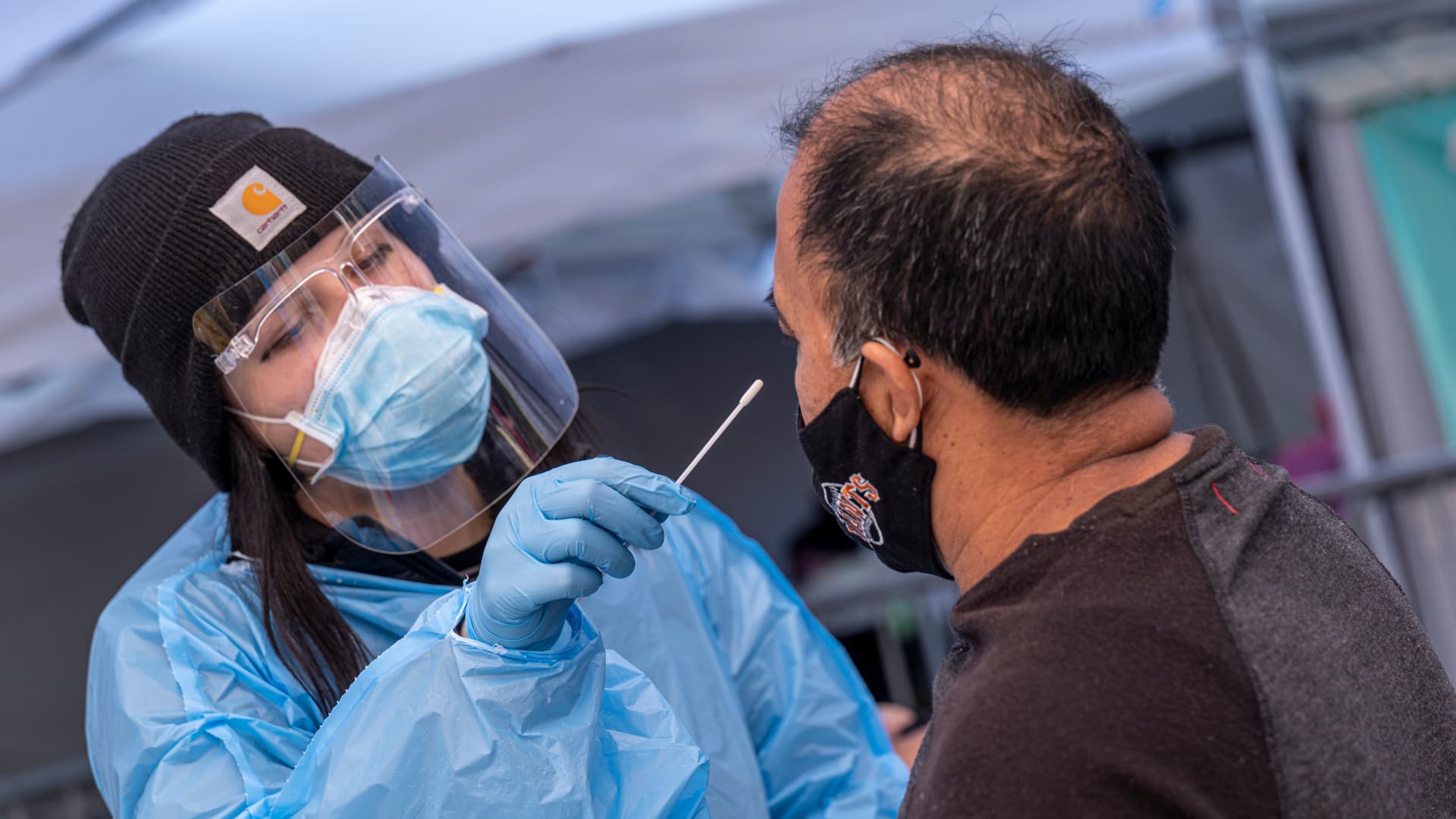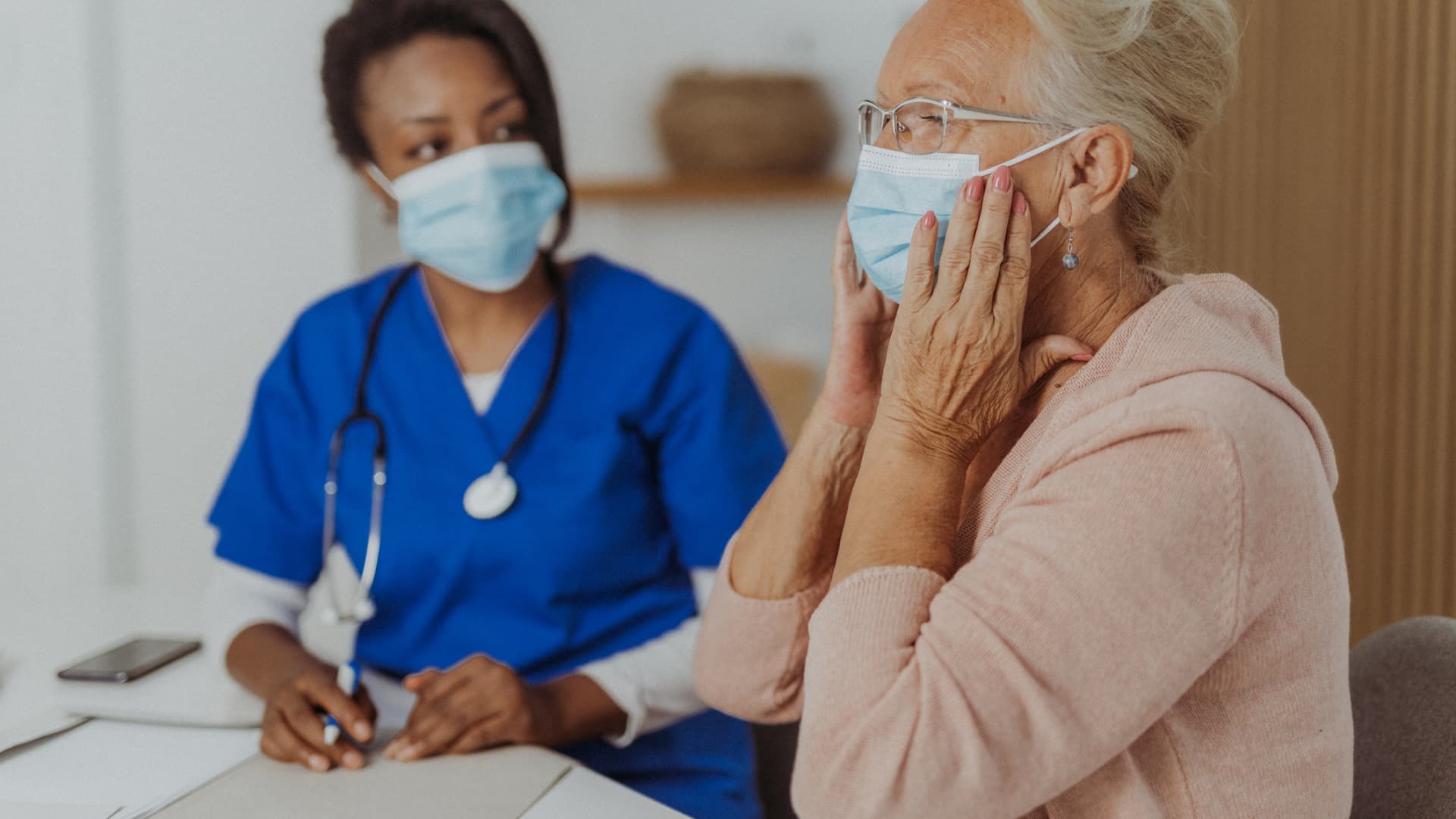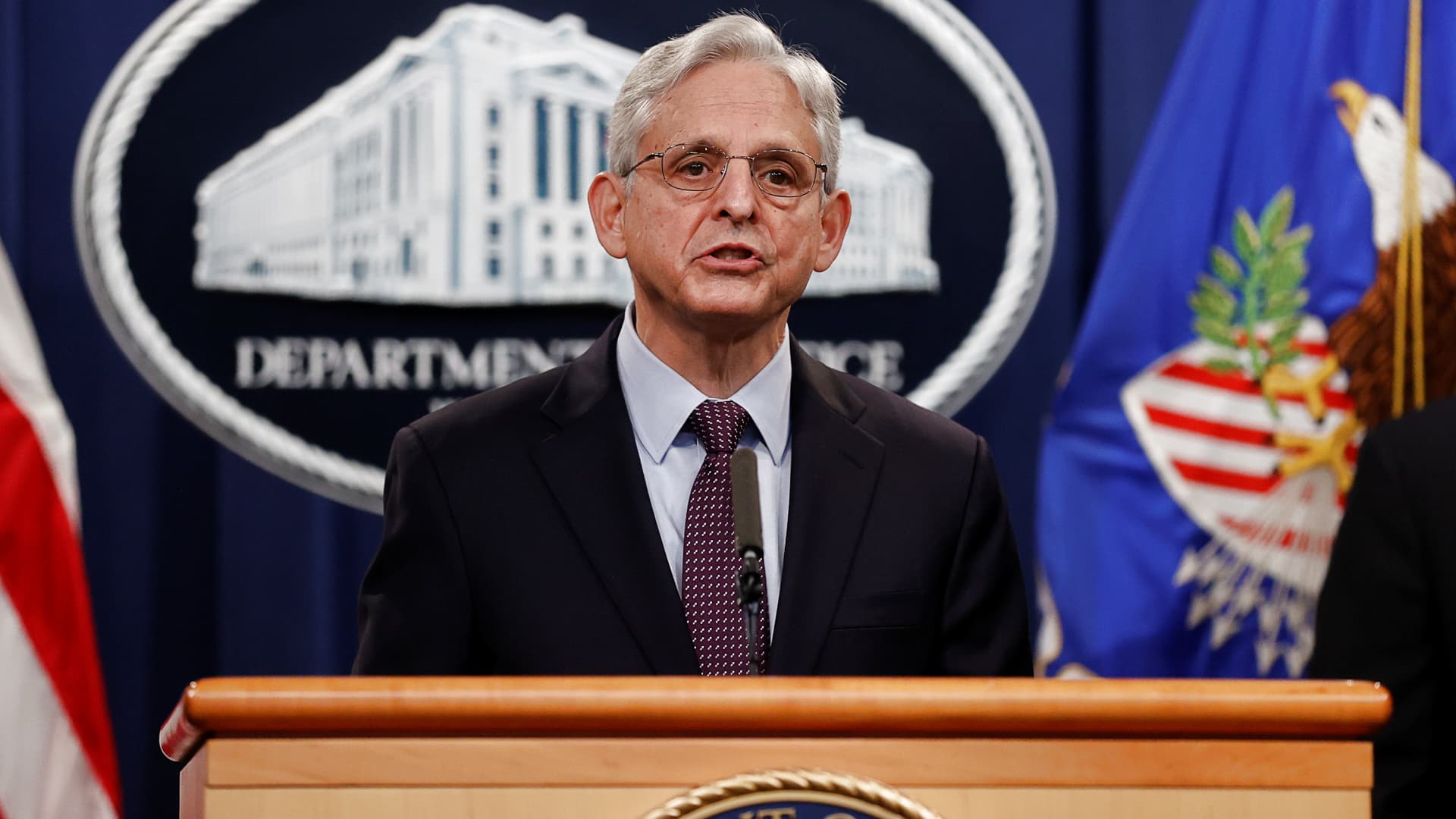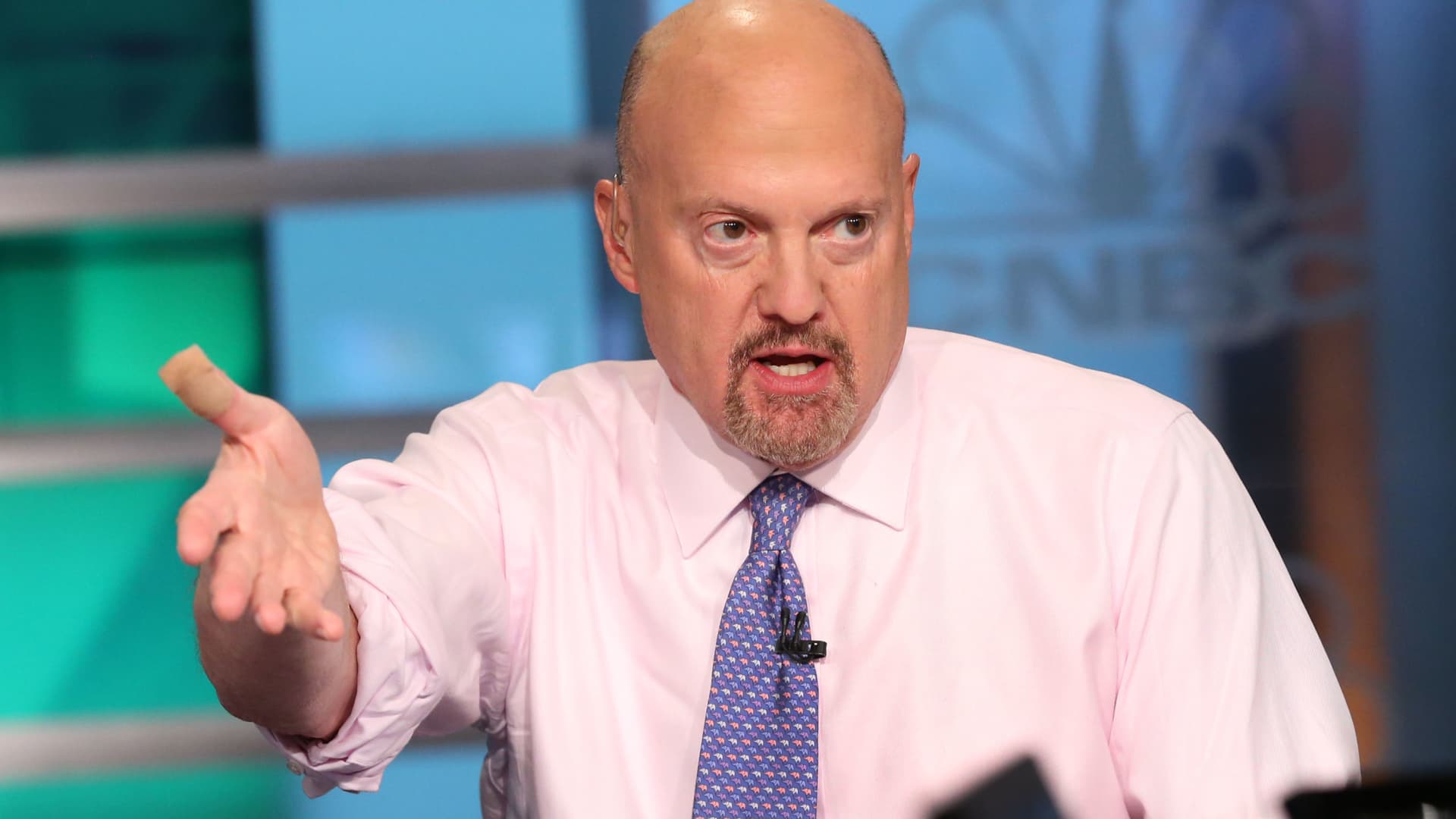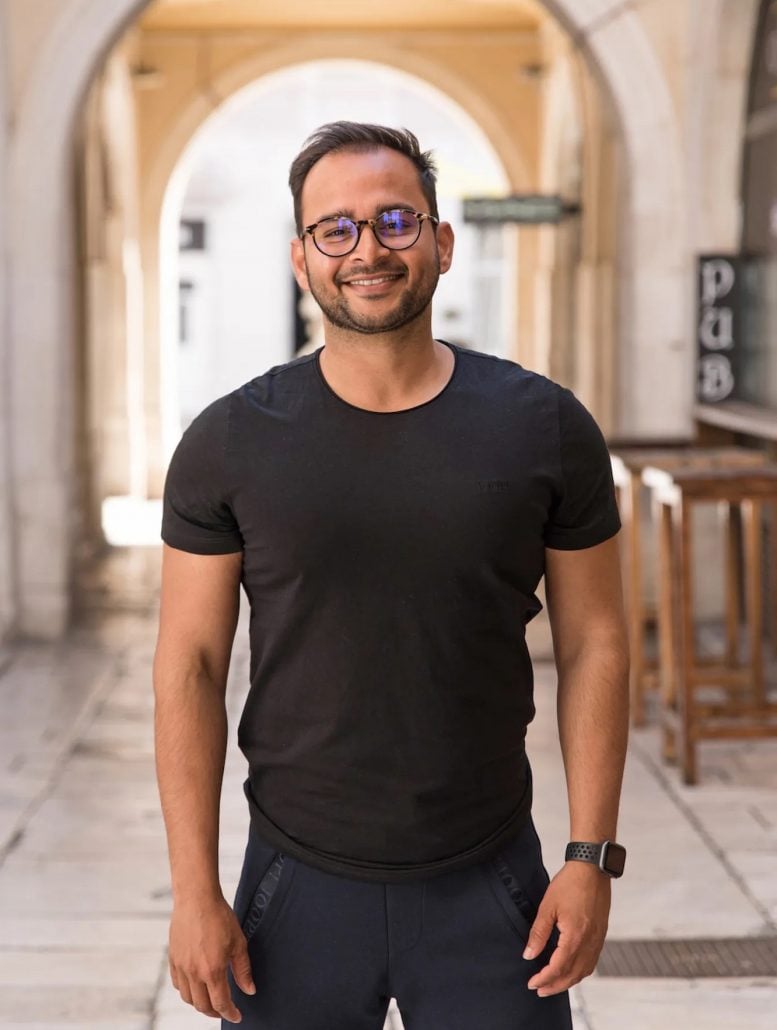Covid hospitalizations spike with new variant as school returns, U.S. readies vaccines
The late summer Covid spike comes after a quiet year in which hospitalizations and deaths had declined week after week since January.
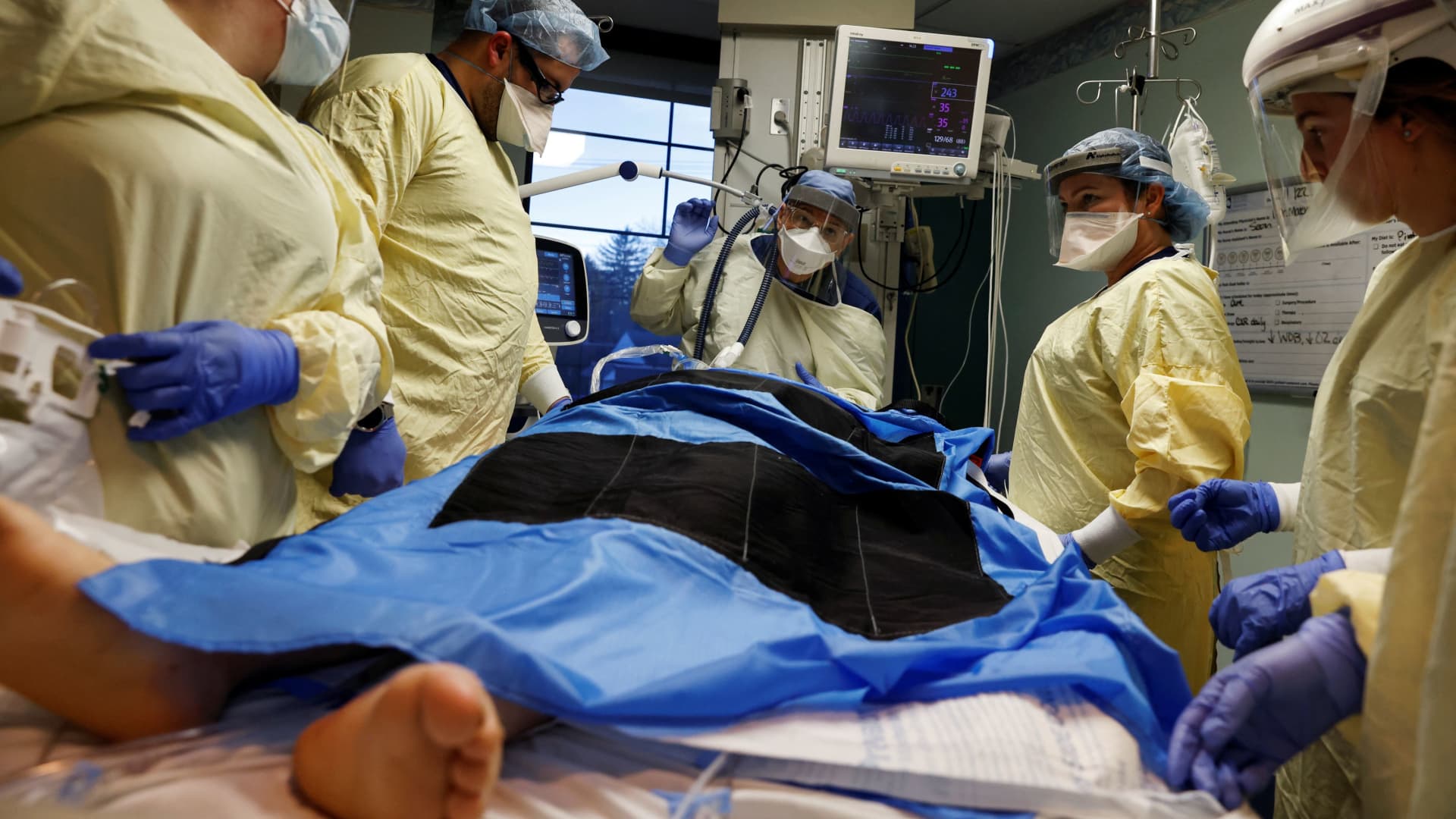
Medical staff treat a coronavirus disease (COVID-19) patient in their isolation room on the Intensive Care Unit (ICU) at Western Reserve Hospital in Cuyahoga Falls, Ohio, U.S., January 4, 2022.
Shannon Stapleton | Reuters
Covid hospitalizations are increasing substantially across much of the U.S. for the first time this year, just as students are returning to school and shortly before updated shots arrive at pharmacies for a fall vaccination campaign.
New hospitalizations have jumped about 16% in the U.S. over the past week, continuing an upward trend that began in late July, according to data from the Centers for Disease Control and Prevention.
New hospital admissions increased more than 30% over the past week in Arkansas, Colorado, Indiana, Kansas, Minnesota, Oklahoma, Tennessee, Utah and Wyoming, according to the data.
The late summer Covid spike comes after a quiet year in which hospitalizations and deaths declined week after week since January.
Dr. Deborah Birx, former White House coronavirus response coordinator during the Trump administration, said the U.S. has largely let its guard down and is ignoring the summer wave of infections, despite the fact that the virus is following a predictable pattern the nation has been through ever year of the pandemic.
"We're living in a bit of a fantasy world where we're pretending Covid is not relevant," Birx told ABC in a podcast interview last week. "There is a lot of Covid out there and we're not testing for it and we're not telling people to get tested," she said.
The U.S. is rolling out updated shots from Pfizer, Moderna and Novavax later this month for a fall vaccination campaign, but the public health response is still struggling to keep up with a fast-evolving virus. The shots were designed months ago to target a variant, XBB.1.5, that is no longer dominant.
Birx said those vaccines should have been released weeks ago to combat the predictable summer wave, adding the U.S. should already be developing new shots for January to target the emerging BA.2.86 variant.
Scientists in China conducted lab studies that found BA.2.86 has a large number of mutations that allow the variant to dodge the protection conferred by vaccination or previous infection. BA.2.86 has so far been detected in 11 countries in small numbers, including the U.S.
"This booster is most likely not going to work with the winter wave because we already have a pretty significant escape variant out there," Birx said.
Subsequent studies indicated BA.2.86 may not be as immune-evasive as originally feared. Moderna said Wednesday its updated shot produced a strong immune response against BA.2.86 during a clinical trial.
The CDC, in a risk assessment published last month, said BA.2.86 may be more adept at causing infection, but there's no evidence the variant results in more severe illness. The updated shots should be effective at reducing severe disease and hospitalization from the variant, according to the agency.
White House press secretary Karine Jean-Pierre said on Tuesday the Biden administration believes the U.S. is well prepared with shots, antivirals and at-home tests heading into the fall and winter.
'It's not going to be the tsunami of cases'
Though Covid is on the rise again, Dr. Anthony Fauci said the number of hospitalizations and deaths are low and the U.S. has a substantial wall of immunity from vaccination and prior infection.
"I doubt very seriously whether you're going to see the hospital and death surge that we've seen in the past even if we get a surge of infections, because there's enough fundamental, community-level protection," Fauci told the BBC in an interview last week.
"It's not going to be the tsunami of cases that we've seen," said Fauci, who stepped down last year from his role as head of the National Institute of Allergy and Infectious Diseases and White House chief medical advisor.
Still, the rise in Covid transmission is causing some disruption in communities. Some school districts in Kentucky and Texas recently canceled classes due to a surge in respiratory illnesses.
And the virus struck the White House again with first lady Jill Biden testing positive this week and showing mild symptoms. President Joe Biden, who is attending the G20 summit in India this week, has tested negative. The first lady last caught Covid in August 2022 and the president tested positive in July of last year.
Birx said it was a "huge mistake" for the CDC to stop tracking cases after the public health emergency ended and rely mostly on hospitalization data to monitor how the virus is spreading: "By the time you see hospitalizations in your area, the virus has been circulating for four to six weeks," she said.
Birx said the summer wave comes about two weeks later every year, which means the U.S. should expect a winter surge in late December or early January. "We should be making vaccine right now for that wave," she told ABC.
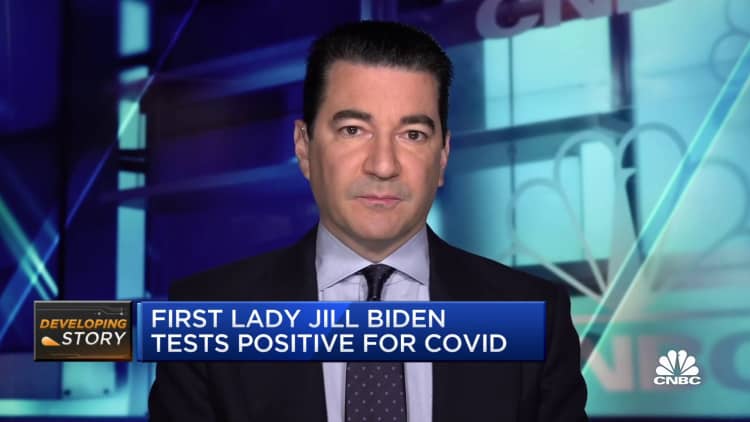

 Aliver
Aliver 







